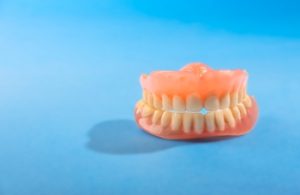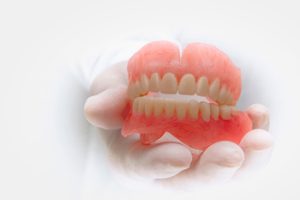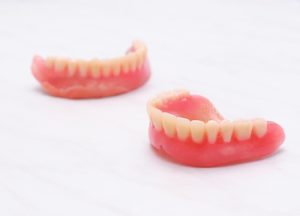Dentures for Pensioners — A Complete Guide For Seniors

Oral health is an important factor in overall health, and it is especially important for seniors. False teeth, dentures, and dental implants can help seniors improve their physical appearance and regain confidence when eating or speaking. It is also important to maintain a healthy diet, as this helps protect teeth from decay and gum disease. Regular visits to the dentist for checkups are essential for all adults, especially those in the senior age bracket; having private health insurance (or at least being aware and knowledgeable of public dental services) ensures that they have access to quality dental care when needed. For those on limited incomes, free dental care or dentally-related benefits are available to provide essential treatments or procedures you may need. Finding affordable medications and quality dentures of sufficient strength can be key in ensuring older people get the dental health services they require.
Dentures for Pensioners
 Dentures are a popular option for many pensioners who need to replace missing teeth. They are a cost-effective solution compared to other options like dental implants. Dentures can be easily customised to fit each patient’s unique smile and offer a natural-looking appearance.
Dentures are a popular option for many pensioners who need to replace missing teeth. They are a cost-effective solution compared to other options like dental implants. Dentures can be easily customised to fit each patient’s unique smile and offer a natural-looking appearance.
However, dentures require proper care and maintenance, which may be challenging for some older patients. They must also be periodically adjusted or replaced to ensure a proper fit as the jawbone changes. Dentures provide a functional and affordable option for pensioners looking to improve their oral health and restore their smiles.
Types of Dentures for Seniors
As a senior, ensuring you have access to quality and affordable dentures is essential for sustaining excellent dental health. Dental services for pensioners can vary depending on where they live but may include the following:
- Public dental services.
- Private health insurance
All these methods can provide dentures as part of their services and treatment plans based on a range of factors, such as eligibility criteria and the cost of dentures. As with any of these dental treatments, it is important to weigh up the options and ensure that the right material and quality dentures are used to last over time.
Implant-Supported Dentures
Implant-supported dentures are increasingly popular among denture wearers, especially pensioners. Not only do they offer far greater stability and comfort than traditional dentures, but they also help to maintain a youthful appearance by replacing lost teeth. Regardless of your financial means, many options are available for accessing quality dentures, and ensuring you have ongoing proper dental care is essential for maintaining your dental health.
Factors To Consider When Selecting Dentures
Choosing dentures is an important decision that should be made carefully to ensure the best fit, comfort, and durability for your unique smile. Comfort is the number one priority when selecting dentures, as it’s essential for spoken communication and to ensure that you feel at ease eating and drinking. Finding a balance between comfort, cost, and durability is key; exploring different options can help you select a set of dentures that satisfy all these needs. Comfort matters most, so even if a pair of dentures are more expensive or have slightly lower durability ratings, they may still be worth it if they provide the best possible fit. Ultimately it’s important to find what works best for your individual needs and budget.
The Process of Getting Dentures
Initial Consultation
The first step in getting dentures is a consultation with your dentist. In this initial appointment, your dentist will assess your oral health and determine if you are a candidate for dentures. They will also discuss any potential risks or complications associated with getting dentures. During this appointment, it’s important to ask any questions or address any concerns that you may have about the process. Your dentist should provide clear, concise answers that help put your mind at ease.
Denture Fabrication
Once determined that you are a suitable candidate for dentures, your dentist will begin the fabrication process. This involves taking impressions of your mouth and using them to create custom-made prosthetic teeth which fit perfectly into place when worn. Depending on the type of denture being made (full or partial), they may also include plastic bases which help hold them securely in the mouth while eating or speaking. These prosthetic teeth are typically made from either acrylic resin or porcelain material and can be coloured to match existing natural teeth if desired.
Fitting and Adjustments
The final step in getting dentures is having them fitted by your dentist. During this appointment, they will ensure that the prosthetic teeth fit properly into your mouth and make any necessary adjustments.
 It’s normal to experience discomfort while wearing new dentures, but this should subside over time as they settle into place more comfortably within your mouth structure.
It’s normal to experience discomfort while wearing new dentures, but this should subside over time as they settle into place more comfortably within your mouth structure.
Your dentist may also suggest using certain products, such as adhesive creams or gels, to help keep them secure during wear times and remove them before sleeping each night for additional comfort levels during rest hours.
Tips for Caring for Dentures
Cleaning and Maintenance
One of the most important aspects of caring for dentures is cleaning them regularly. It would be best if you brushed them once a day with a soft-bristled toothbrush and non-abrasive toothpaste. After brushing, use a damp cloth or sponge to remove any remaining debris or plaque. It’s also important to soak your dentures in a special solution overnight so bacteria don’t build up on them. This will also help keep them from becoming stained or discoloured.
Proper Storage
It’s important to store your dentures properly when you are not wearing them. Please place them in a glass filled with enough water or a special denture cleaning solution so they won’t dry out. Cover the glass before storing it in the refrigerator overnight so that bacteria won’t get into it while it’s stored away.
Regular Checkups
It’s important to have regular checkups with your dentist even if you wear dentures, just like you would if you had natural teeth. Regular checkups will help ensure that your dentures fit properly and still function correctly. During these appointments, your dentist can make adjustments or suggest ways to improve their comfort and fit if necessary.
 Diet Modifications
Diet Modifications
Adjusting your diet is a key part of adapting to life with dentures. Chewing food can take some practice to get comfortable and prevent discomfort or damage. Start by eating soft foods like mashed potatoes, porridge, and scrambled eggs, which are easy to chew and swallow without your natural teeth. Avoid hard or crunchy foods like apples or raw carrots, as they can cause pain and damage if not chewed properly. It’s also important to avoid sticky foods like caramel or items with small seeds, such as raspberries, as they can get stuck between teeth, irritating. As time goes on and you become more comfortable using your dentures, you can gradually reintroduce these foods into your diet in moderation.
Speech Considerations
Speaking is another important consideration when it comes to wearing dentures. Slurring of words or a lisp are common problems associated with wearing new dentures, but luckily there are ways around it! Start by practising forming words out loud in front of a mirror until you feel comfortable speaking again. You should also avoid speaking too quickly as this could cause slurring due to the extra effort required from your mouth muscles when talking fast with dentures – speak slower than usual until you feel more comfortable doing so at a regular pace again.
Social Considerations
It may feel strange at first to have conversations without being able to move your lips naturally due to the presence of dentures, but there are a few ways around this too! Make sure you smile often and use hand gestures when talking – this help show emotion without relying on facial expressions, which may feel restricted due to the presence of your new teeth; both methods will help make conversations feel more natural for both parties involved!
Conclusion
In conclusion, dentures can be a life-changing solution for pensioners struggling with oral health issues. With the right type of dentures and proper care, seniors can confidently regain their ability to eat, speak, and smile. It’s important for pensioners to carefully select their dentures, follow proper care instructions, and practise lifestyle adjustments as needed to get the most out of their dentures. If you or a loved one is considering dentures, consult our dental professionals at My Local Dentist to learn more about the options available and how they can improve your quality of life. Contact My Local Dentists today to make an appointment!
Note: Any surgical or invasive procedure carries risks. Before proceeding, you should seek a second opinion from an appropriately qualified health practitioner.
References
Dentures
https://www.betterhealth.vic.gov.au/health/conditionsandtreatments/dentures#types-of-dentures
Saliva and dentures
https://pubmed.ncbi.nlm.nih.gov/11819988/
